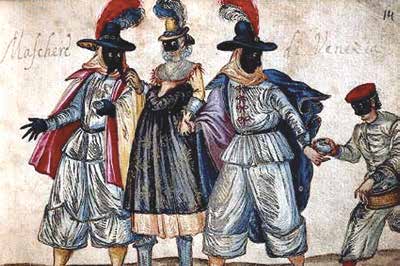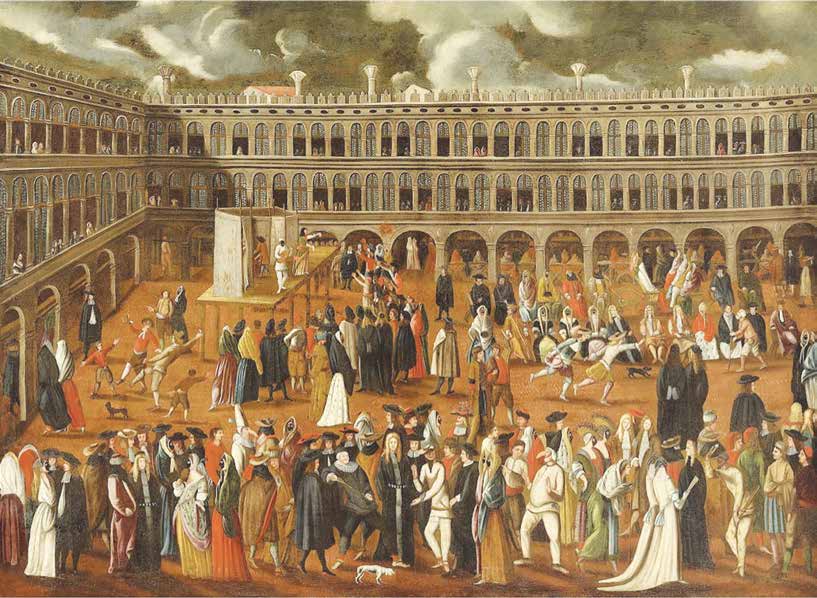
By Dr. Bill Lipsky–
Whoever said, “Truth is stranger than fiction,” could have had Antonio Rocco in mind. Someone had to do it, but it certainly seems contrarian that L’Alcibiade fanciullo a scola (Alcibiades the Schoolboy), the book many consider to be the first modern homoerotic novel and the first clear statement of a “gay identity,” was written by a respected Catholic priest, philosopher, teacher, author, and rhetorician. Besides, as Eulalie Mackechnie Shinn would have said, “It’s a smutty book.”
Researchers initially believed the book’s author was Pietro Aretino, religious biographer, pornographer, and blackmailer. More recently, credit went to Ferrante Pallavicino, whose sexually explicit tomes, including The Whore’s Rhetoric (1642), and criticism of Pope Urban VIII led to his being purified by flame in 1644. Rocco was more fortunate. Although denounced five times to the Inquisition in Venice, he always escaped punishment.

Born in 1586 in Scarcula d’Abruzzo, Italy, then part of the Kingdom of Naples, Rocco studied theology and philosophy in Rome, Perugia, and Padua before he settled permanently in Venice. His was a distinguished career. A teacher at San Giorgio Maggiore monastery, one of Europe’s most important and influential theological, cultural, and artistic centers, Brother Antonio became a noted man of letters, rhetorician, and author.
He was famed as an Aristotelian, his opinions valued as authoritative. In 1633, the year Galileo was tried by the Inquisition, Rocco assailed him for supporting Copernicus’ view of the sun being the center of the solar system. The next year he lectured about “love in all of its manifestations,” arguing: “Love is a pure interest,” that “each person loves only himself.” In 1636, Venice named him its official teacher of rhetoric and, possibly with some irony, moral philosophy.
Written in 1630, Alcibiades the Schoolboy may have circulated in manuscript before being published anonymously in 1651 as a “libretto da Carnevale” or a book for Carnival, the famed Venetian celebration of permission and pleasure that ended with Lent. It was immediately condemned and then suppressed by the Church, with no copies of its first printing and fewer than a dozen copies of its next two printings surviving.

Possibly “the most extraordinary dissertation of homosexuality in early modern Europe” and “the first clear expression of a homosexual identity and subculture in the modern West,” it was two hundred years before a new edition of the Italian text appeared in 1862, published in Paris by Jules Gay. Denounced the next year by the Public Prosecutor as “a most filthy book,” nearly all copies were destroyed.
Gay took exception to this action. He had the book translated into French and published it in Brussels in 1866. It was again condemned as “an outrage to good morals,” and again, in 1868, ordered destroyed. The French translation was reprinted in Brussels in 1891, in Paris in 1936, and Montreal in 1995. The first English translation appeared in 2000.
The story is simplicity itself. Philotimos, a respected teacher, lusts for Alcibiades, his best loved and most alluring student. Alcibiades resists all of his advances, telling him, “What you wish to do offends honor and is contrary to Nature and to law.” Philotimos, however, persists over many encounters, finally asking, “Tell me, I pray you, what drives you to resist the ardors of your lovesick master so obstinately?”
Alcibiades shares his reasons. First, “What you wish to practice is a hideous vice which offends Nature.” Second, “Our law forbids it.” Third, “If you consider that the punishment does not stop at worldly griefs, but that the soul itself, when separated from the body, is visited by eternal and inexpressible tortures, do you wonder that I hold this vice in horror, that it fills me with terror and repugnance?”
What follows—the majority of the work—is a conversation between Philotimos and Alcibiades, in the form of a Socratic dialogue, in which the teacher counters and dismantles these arguments and others that grow from them. “You say that it is a crime against Nature,” he says. “Yet how can desires dictated by Nature herself be called ‘unnatural’? An act is natural when Nature impels one to it, when she desires it.”
Men loving men may be against the law, but “men make laws to conform to their own interests, not always to what is right and just … more to answer the interests of the State than the laws of reason or of Nature … and it is the purpose of the State to make so many repugnant laws seem, to the eyes of the stupid and vulgar, pious and sacrosanct.”
Regarding the peril of our immortal soul: “Those who, in their own interests, have believed it convenient to forbid this form of love, know very well that their proscription is, to those of wisdom, contrary to all reason, so they have sought to attribute their pathetic law to the dictates of God. In the same way do deceitful men use the Oath to cover their lies and to introduce their false dogmas, mingling the sacred and the profane.”
The book is still controversial. Alcibiades’s age is never given, but he clearly is much younger than Philotimos. In addition, Philotimos uses his position of authority as his teacher to convince and eventually win his student over. Whatever the laws and customs of Ancient Greece and 17th century Italy, his deeds would be illegal in all fifty United States today.
Even so, Rocco’s work shows that four centuries ago, some at least recognized same-sex attraction as natural and normal. They had some sense of a “gay understanding” and a “gay identity,” which we accept as fact today. They also had a “gay network” to come together and to preserve and convey an outlawed homoerotic novel from their time to ours. Whether or not “it’s a smutty book,” it is one of great historic value.
Bill Lipsky, Ph.D., author of “Gay and Lesbian San Francisco” (2006), is a member of the Rainbow Honor Walk board of directors.
Published May 7, 2020
Recent Comments